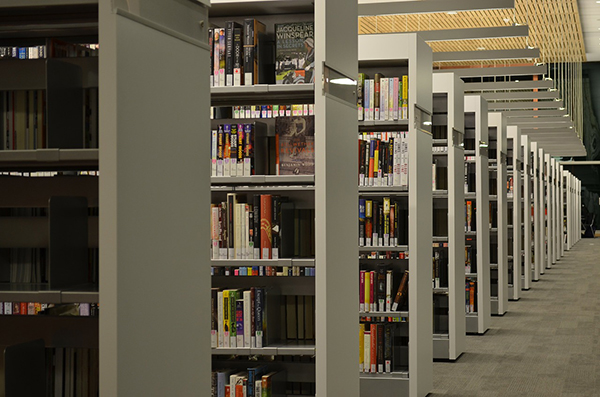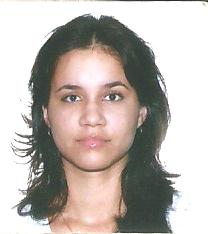October 2014 Issue
Read, Comment and Enjoy!
Join Translation Journal
Click on the Subscribe button below to receive regular updates.
Information-based Translation Training Helps Undergraduates Carry out Translation Tasks in Actual Settings.
- Details
- Written by Luis D. González and Glenda M. Mejía

Abstract
This article focuses on translation training based on information skills acquisition. New trends in translation education and studies conducted by some researchers have demonstrated that information seeking, processing and socializing is an imperative no translator and interpreter can afford to look over. Accordingly, a new subject matter has been included in the curriculum of students majoring in translation and interpreting at the University of Camaguey, Cuba. Information-based translation education paid off during the on-the-job translation and interpreting training periods, where students were able to carry out information-related tasks on their own in order to produce effective translation and interpretation in real contexts.
Key words: Information management, information skills, translation training, Internet, on-the-job training.
Introduction
Learning is not a static process and knowledge production is heterogeneous in terms of professional skills and culture; the new changes and realities should be incorporated to education as well. It is collaborative work instead of individual performance. Proper information use and application in the pursuit of progress will be the main target of governments, organizations and individuals.
Present-day information and knowledge society is characterized by the intensive use of information in all spheres. The Alexandria Proclamation (2005) refers to information literacy as one of the guidelines of the Information Society. Information literacy gives people the power to seek, evaluate, use and create information effectively to achieve their personal, social, occupational and educational goals. Information literacy in the digital world promotes social inclusion of every country.
Informational skills should be developed and trained mostly in the universities in order to simulate society at a smaller scale, so professionals can incorporate new capacities to locate and use information, and be able to turn the information acquired into useful and powerful knowledge (Machado, 2008; Pinto and Sales, 2009). Teachers must be involved in the formation and development of certain skills needed in the curriculum of the students, like information management in the field of translation and interpreting training.
Trends in Translation and Interpreting
The origin of machine translation may be traced back to the 17th century but it was in the second half of the 20th century that those ideas were put into practice. During the 1980s, translators were becoming familiar with the benefits of computers for their work – word processing, individual glossary compilation, online access facilities and document transmission.
Information technology has transformed the way in which translation is studied. Although the fully reliable automatic translation (Boehm et al., 1995) may still lie in the future, there has been a rapid rise in corpus linguistics which means that large amounts of naturally occurring language can be examined rapidly and accurately using the new digital technologies (Aijmer and Altenberg, 2014). The possibilities are enormous for the generation of new texts (Bateman, Matthiessen and Zeng, 1999).
However, a couple of questions (problems) must be answered. Can machines supply all information needs? Can they analyze, exchange (socialize), and produce development beyond the programmed constraints? Information management engages humans and modern technologies, they are partners; information literacy involves human mastery of technologies to develop human skills and knowledge, not the other way around. Conscious human-machine, human-human interaction will produce more practical results.
In spite of the trend to use software and other computerized tools to help with translation and interpreting, the need for human translators and interpreters continues to grow. Evidence to prove this is the substantial increase observed in higher education institutions offering translation and interpreting university degrees (49 in 1960; 108 in 1980; 250 in 1994; more than 300 in 1999) (Caminade and Pym, 1995; Hurtado Albir, 1999).
The translator is expected to be an expert in intercultural communication: the translator and interpreter analyze the commissioner’s aims, expectations and working conditions (Nord 1991), and acts as a cultural mediator. However, this type of interaction can be simulated in the classroom environment.
Currently, the number of research papers (Pinto and Sales, 2009; Enriquez Raido, 2011; Gonzalez, 2014) pointing to the fact that translators and interpreters tend to be more information-dependent than what they were thirty or twenty years ago, is increasing. Accordingly, translation and interpreting professionals will eventually have to be included in the list of information specialists, with a very clearly defined objective: help communication flow in bilingual (or multilingual) environments where information (cultural, scientific, political, diplomatic, etc.) will be taken by the hand by cultural mediators, also known as translators and interpreters. As a result, translator training will have to widen curricula to other subjects that encourage information-based training (Pinto and Sales, 2009; Enriquez Raido, 2011; González, 2014).
Learning Information management skills will allow the students to use the Internet in a better way and to look for information from a scientific point of view, knowing that information must have certain characteristics: it has to be specific, accurate, consistent and tailored to customers’ needs.
Translation is characterised as offering information to members of one culture in their language about information originally offered in another language within another culture. It involves the transfer of information from a text in one language, the source language, into a text in another, the target language, and this transfer is a mental process which relies on sophisticated information processing skills.
Because the future holds more information stockpiling and more technology to manage, translator and interpreter training should also include the application of supporting tools, and the information management process should be one of them. Translators must carry out a deep research on a given topic in order to render faithful translations. Nowadays, there are so many sources that can provide high quality information volumes in libraries, encyclopedias, dictionaries, glossaries, interviews to experts, etc., that even experts get misled in their dealings with information.
The translation process and the training of future translators are no longer based upon the bilingual competence of translators alone. Their capacity to analyze the relations between the source text and target text in order to produce a translation which is as close to the source text as possible and meets all necessary linguistic and cultural conventions of the target-language community, is determining. Additionally, the translator must possess specialised knowledge concerning the subject or field covered by the source text itself.
The training of future professional translators requires a number of processes that generate information to be reproduced and understood in a formal logical thought. Translators and interpreters should work on a variety of topics and themes, sometimes related, which is good to develop proficiency in the specialty; on occasions, translators are confronted with new, difficult texts under time pressure. They are supposed to have a round of information exchange with other colleagues, typically over the net. Interpreters (oral text) often work on “mined fields”, with no time to go through errors, misinterpretations or failure. Their work, as well as that of translators, will entirely depend on the information they were able to manage properly in the preparation process and their mastery.
From the translator´s perspective, not only searching, but also managing information, with all its stages or abilities, is playing a fundamental role in trade, politics, and science. Information search and retrieval in translation should no longer be limited to individual work, or be left in these two stages only. As the Internet has joined continents together, information management should be the guiding hand for translators and interpreters.
At the University of Camaguey, Cuba, a new subject matter has been added to the student curricula, Information Management for Translation, in order to train translation students with information skills mastery. A few scholars have conducted research and suggested the introduction of new subject matters to train translators, using information management resources (Pinto and Sales, 2009; Enriquez Raido, 2011; González, 2014).
In Camaguey, the subject (32h) includes using technology to translate (other than CAT tools), like proper use of Internet resources to obtain, process and communicate information effectively. Pinto and Sales (2009) revealed in a study that both students and teachers felt that students were misled by the Boolean system most search engines have. So it has become one of the main topics in the subject, as effective, time saving searches are important. Learning how to use the Boolean system will greatly contribute to more effective and timely searching and processing; as well as more realistic assessment of information sources.
Other topics included in the subject are processing information, using a wider range of online electronic dictionaries and encyclopedias (most students today only use Wikipedia), retrieving and storing information, and exchanging information in class. One controversial issue in the years to come may be the number of hours Information Management for Translation has, which might need still more time in the curricula.
Nevertheless, an increase in translation efficiency and accuracy has been observed in students majoring in Translation and Interpreting at the University of Camaguey, Cuba. During their on-the-job training period in their third (translation) and fourth years (interpreting), the students have been able to produce quality results, nearly compared to professionals. A survey to fifth-year students revealed that interviewing specialists and seeking relevant information on the Internet about a particular area of knowledge produced major changes in the way they viewed their practices, and that they felt more motivated and usually self-compelled to dig deeper. The survey also proved that information skills (technology use and socializing) were essential for translator and interpreting training in the professional field.
Finally, students also said that the more they learned about a given topic, the more curiosity they felt to learn more. Accordingly, it can be said that information-based translator training also helps in terms of knowledge acquisition, as there is a self-motivation to search for more.
Conclusion
Though first applied in business management and computer applied sciences, information-based training in translation has proven to be an updated, very efficient approach to deal with translator education in the information society. The time when translators and interpreters only lived on glossaries and dictionaries which became easily outdated, is long gone, gradually giving way to new more efficient tools, like the Internet and all the in-built possibilities it brings in one “basket.“ The results from the test applied in this research may be useful to other experts, who may go further in the field of translator training and information research.
Researchers worldwide are increasingly suggesting the introduction of information skills in as many as possible fields of knowledge. Their application higher education will produce a new generation of professionals in the areas of translation and interpretation. Information skills should be used in colleges and universities where the new professionals are trained, regardless of their field of knowledge.
New strategies in translation training should be applied, which start in motivation and end up in knowledge. Translation is a problem-solving activity full of new and unexpected challenges each day, the solution lies in information.
References
• AASL (1998) Information literacy standards for student learning.
• American Library Association. Presidential Committee on Information Literacy (1989). Final Report. [Online]. Chicago, IL. Retrieved 10 September 2006, from http://www.ala.org/acrl/nili/ilit1st.html. Archived at http://www.webcitation.org/6QDTlF9sY
• Anderson, M. (1992) Intelligence and Development. A cognitive theory, Oxford. Ed. Blackwell.
• Baker Mona and Saldanha Gabriela. Routledge Encyclopedia of Translation Studies. 2nd Edition. Edited by Routledge – 2011 – 680 pages
• Cortés, J. et al (2002) Normas sobre alfabetización informativa en educación superior. Tercer Encuentro sobre Desarrollo de Habilidades Informativas. Ciudad Juárez, Chihuahua, México, October 11
• Cronin, M. (2003). Translation and Globalization. . London/New York: Routledge.
• Doyle, C. S. (1992). Outcome Measures for Information Literacy within the National Education Goals of 1990: Final Report to National Forum on Information Literacy. [Online] Retrieved from http://eric.ed.gov/ERICDocs/data/ericdocs2sql/content_storage_01/0000019b/ 0/13/2c /6e.pdf. Archived at http://www.webcitation.org/6QDUBlXsS
• Enríquez Raído, V. (2011). Developing web searching skills in translator training.
• FEMTI. (2003). A Framework for the Evaluation of Machine Translation in Isle. [Online]. Retrieved from www.isi.edu/natural-language/mteval Archived at http://www.webcitation.org/6QDW6iBJl
• Hurtado Albir, A. (1999). Objetivos de aprendizaje y metodología en la formación de traductores e intérpretes. Enseñar a traducir, 8-58.
• Kiraly, D. (2000). A Social Constructivist Approach to Translator Education: Empowerment from Theory to Practice. Manchester.
• Kussmaul, P. (2008). Training the Translator. Amsterdam: John Benjamins.
• López Rupérez, F. P., M.D. and P. Municio. (2009). Hacia una educación de calidad. Gestión, instrumentos y evaluación. Madrid: Narcea.
• MACHADO, EVELIO; MONTES DE OCA, NANCY y MENA, ALODIO (2008). El desarrollo de habilidades investigativas como objetivo educativo en las condiciones de la universalización de la educación superior. Pedagogía Universitaria, Vol. XIII, No 1, (pág 164).
• Matrat, C.M. (1995) Investigating the Translation Process: Thinking Aloud versus Joint Activity, Ann Arbor: University Microfilms International.
• Nazar, R. (2011). Parallel corpus alignment at the document, sentence and vocabulary levels. Procesamiento del lenguaje natural, 47, 129-136.
• Nida, E. A. (1969). Science of translation. Language, 483-498.
• Nolan, James. (2005). Interpretation: Techniques and Exercises. Clevedon- Buffalo-Toronto. Multilingual Matters
• Nonaka, K. (1996) Umemoto Ketsushiro; Sanoo, Dai, From information processing to knowledge creation: a paradigm shift in business management, Technology in Society. Vol. 18, No 2, pp. 203-218.
• Nord, Christiane (1991b) ‘Scopos, Loyalty, and Translation Conventions’, Target 3(1): 91–109.
• Ortoll, E (nd). Gestión del Conocimiento y competencia informacional en el puesto de trabajo. [Omline] Retrieved from http:// www.arearch.com.colab.htm. Archived at http://www.webcitation.org/6QDURsxVX
• Piaget, J., & Vigotsky, L. (2008). Teorías del aprendizaje.
• Ponjuán Dante, G. (1995) La Nueva postura del profesional de la información. Havana. Ciencias de la Información, Vol. 26, No. 4, 1995, pp. 157-161.
• Resnick, H. (1994). Future of electronic technology in human service practice and education. Special topic: Electronic tools for social work practice and education: II. Computers in Human Services, 11, 379-384.
• Sales Salvador, D. (2008). Towards a student-centred approach to information literacy learning: A focus group study on the information behaviour of translation and interpreting students.
• Salmon, G (2000) •E-moderating: The Key to Teaching and Learning Online, Kogan Page, 2000, ISBN 0-7494-4085-6.
• Aijmer, K., & Altenberg, B. (Eds.). (2014). English corpus linguistics. Routledge.
• Boehm, B., Clark, B., Horowitz, E., Westland, C., Madachy, R., & Selby, R. (1995). Cost models for future software life cycle processes: COCOMO 2.0.Annals of software engineering, 1(1), 57-94.

